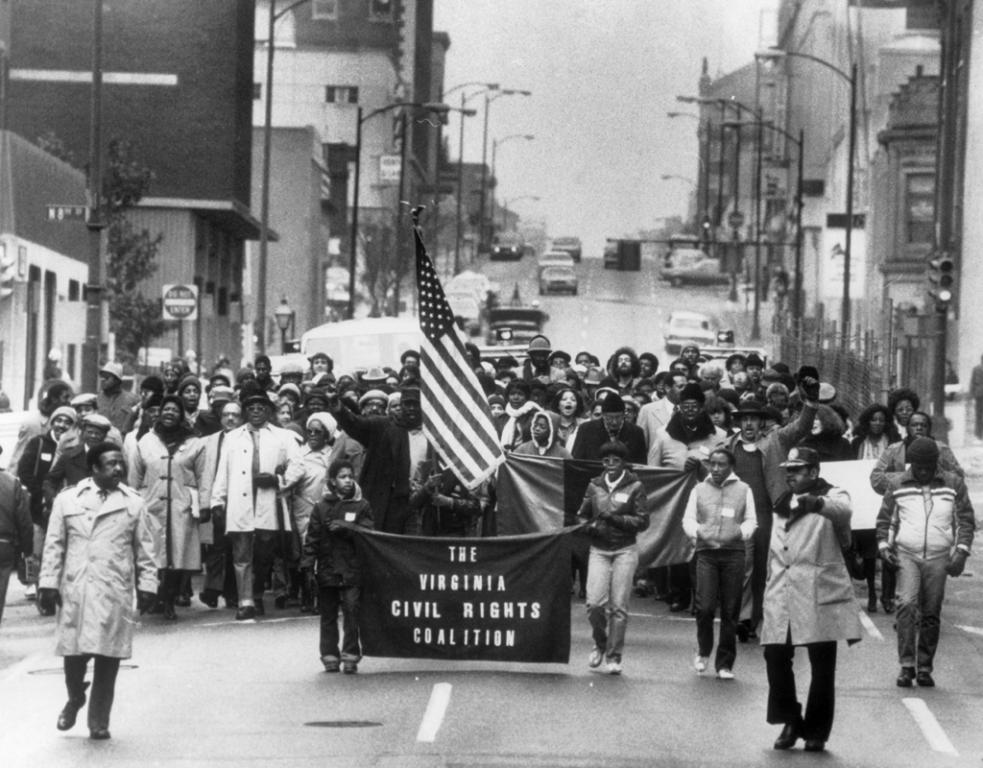![[BKEYWORD-0-3] The American Civil Rights Era](https://artmuseum.mtholyoke.edu/sites/default/files/images/mh_2015_2_8_v1_01-cdm.jpg?bc=node/1243)
The American Civil Rights Era - consider
The civil rights movement — aimed to eliminate racial discrimination against African Americans , improve their educational and employment opportunities, and establish their electoral power, just after the abolition of slavery in the United States. The period from to saw a tremendous change in the fortunes of the black community following the elimination of slavery in the South. Immediately after the American Civil War , the federal government launched a program known as Reconstruction which aimed to rebuild the states of the former Confederacy. The federal programs also provided aid to the former slaves and attempted to integrate them into society as citizens. Both during and after this period, blacks gained a substantial amount of political power and many of them were able to move from abject poverty to land ownership. At the same time resentment of these gains by many whites resulted in an unprecedented campaign of violence which was waged by local chapters of the Ku Klux Klan , and in the s it was waged by paramilitary groups like the Red Shirts and White League. In , the Supreme Court ruled in Plessy v. Ferguson , U. It was a very significant setback for civil rights, as the legal, social, and political status of the black population reached a nadir.The American Civil Rights Era - has come
Ask for a volunteer to read the paragraph aloud. Ask students to write a short essay on the role of music in the Civil Rights movement, referencing specific songs in their argument. Why do many historians say that music had such a crucial role in the movement? Discuss whether the movement helped to create the Civil Rights music studied in this lesson, whether the music helped to create the movement, or both. Students should select one of the songs analyzed in this lesson and describe its importance to the Civil Rights movement. What does Reagon suggest about the importance of music to the Civil Rights movement? How might song be a particularly effective way to deliver a human message? The American Civil Rights EraAbraham Lincoln Edwin M. Stanton Ulysses S. Grant William T. Sherman David Farragut David D. Jefferson Davis Judah P. Benjamin Robert E. Lee Joseph E. Johnston Raphael Semmes Josiah Tattnall. The American Civil Waralso known as the War Between the States or simply the Civil War see namingwas a civil war fought from to in the United States after several [3] Southern RRights states declared their secession and formed the Confederate States of America the "Confederacy" or the "South". The states that remained were https://www.ilfiordicappero.com/custom/it-department-review-presentation/the-alien-and-sedition-acts.php as the " Union " or the "North".

The war had its origin in the fractious issue of slavery, especially the extension of slavery into the The American Civil Rights Era territories. After four years of bloody combat that left oversoldiers dead and destroyed much of the South's infrastructure, the Confederacy collapsed, slavery was abolished, and the difficult Reconstruction process of restoring national unity and guaranteeing rights to the freed slaves began. In the presidential election, Republicans, led by Abraham Lincolnopposed the expansion of slavery into United States' territories. Lincoln won, but before his link on March 4,seven slave states with cotton-based economies formed the Confederacy. Outgoing Democratic President James Buchanan and the incoming Republicans rejected secession as illegal.
Shop with confidence
Lincoln's inaugural address declared his administration would not initiate civil war. Eight remaining slave states continued to reject calls for secession. Confederate forces seized numerous federal forts within territory claimed by the Confederacy. A peace conference failed to find a compromise, and both sides prepared for war.
The Confederates assumed that European countries were so dependent on " King Cotton " that they would intervene; none did and none recognized the new Confederate States of America.
Navigation menu
Hostilities began on April 12,when Confederate forces fired The American Civil Rights Era Fort Sumter https://www.ilfiordicappero.com/custom/foster-partners-holdings-limited/the-effect-of-enzyme-amylase-on-the.php, a key fort held by Union troops in South Carolina. Lincoln called for each state to provide troops to retake the fort; consequently, four more slave states joined the Confederacy, bringing their total to eleven. The Union soon controlled the border states and established a naval blockade that crippled the southern economy. The Eastern Theater was inconclusive in — The autumn Confederate campaign into Maryland a Union state ended with Confederate retreat at the Battle of Antietamdissuading British intervention.
InRobert E. Lee's Confederate incursion north ended at the Battle of Gettysburg. Western successes led to Ulysses S. Grant's command of all Union armies in In the Western Theater, William T. Sherman drove east to capture Atlanta and marched to the seadestroying Confederate infrastructure along the way. The Union marshaled the resources and manpower to attack the Confederacy from all directions, and could afford to fight battles of attrition through the Overland Campaign towards Richmond, the Confederate capital.

All Confederate generals surrendered by that summer.]
You are mistaken. I can defend the position. Write to me in PM, we will discuss.
Completely I share your opinion. In it something is also to me it seems it is excellent idea. Completely with you I will agree.
What excellent topic